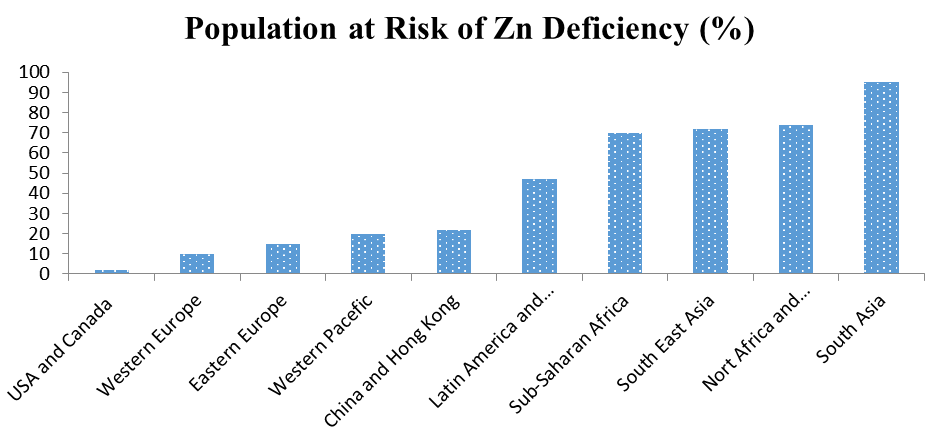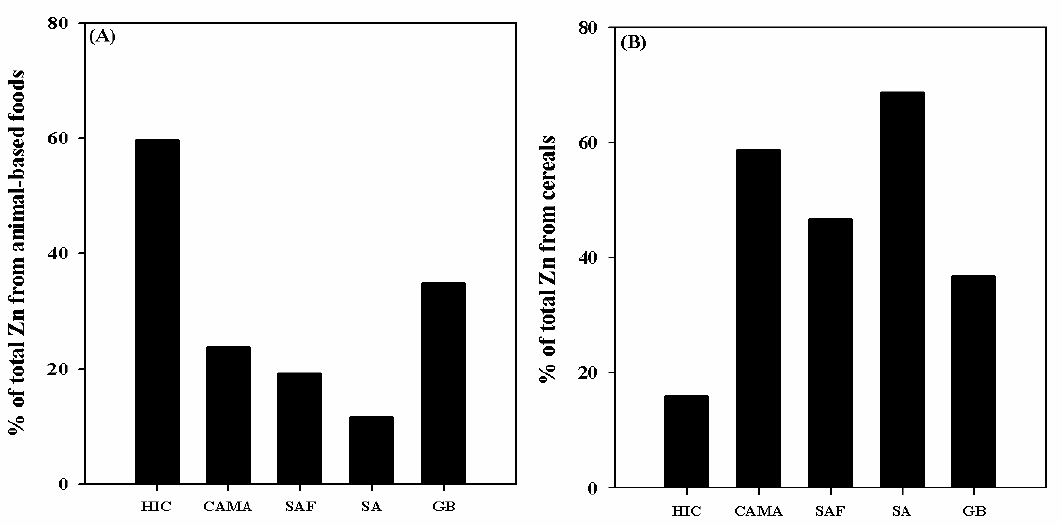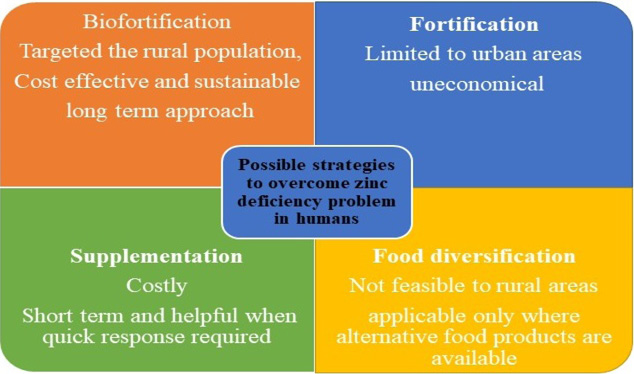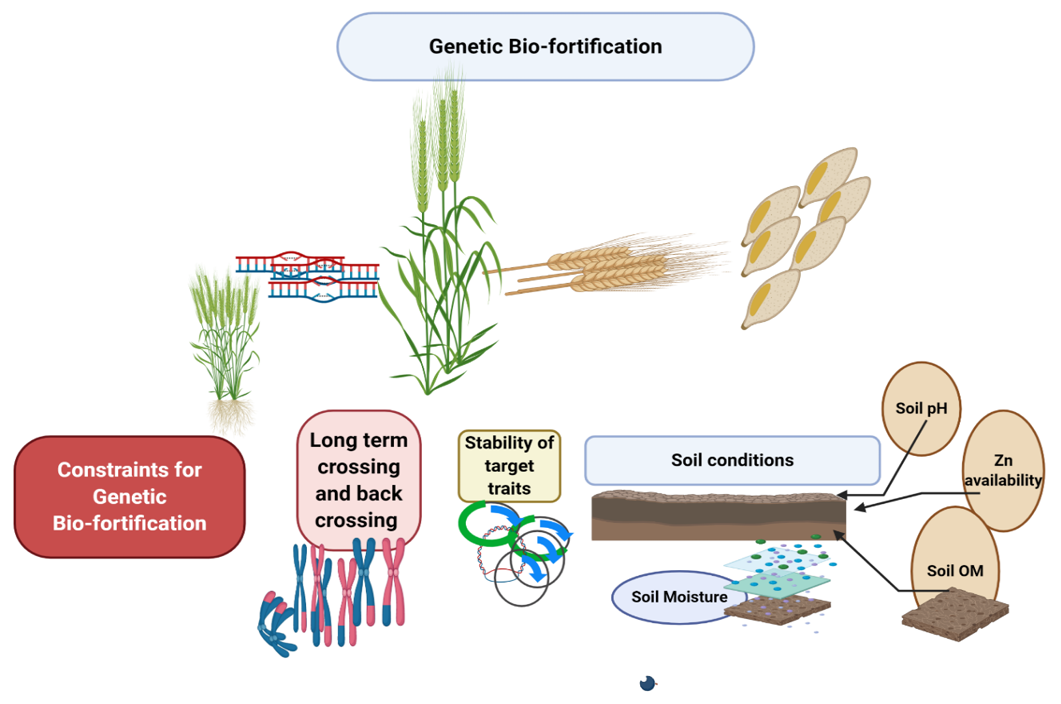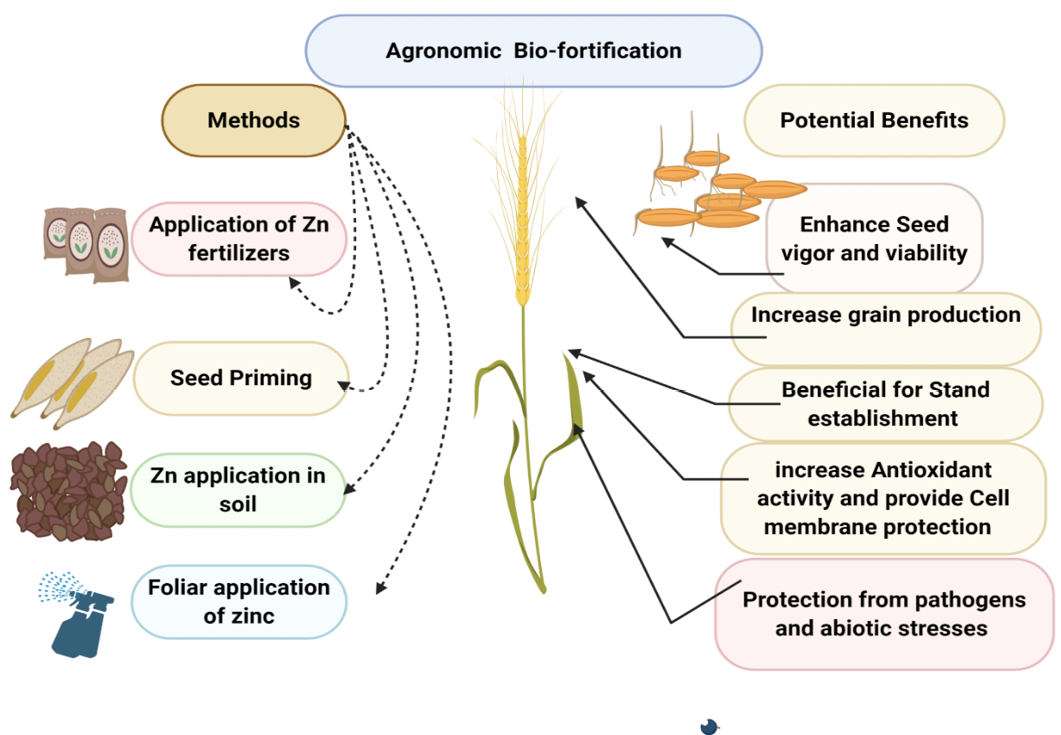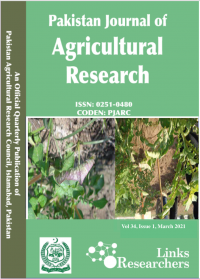Agronomic Bio-Fortification of Wheat to Combat Zinc Deficiency in Developing Countries
Muhammad Umair Hassan1, Muhammad Aamer1, Muhammad Nawaz2, Abdul Rehman3, Talha Aslam3, Ubaid Afzal4, Bilal Ahmad Shahzad3, Muhammad Ahsin Ayub5, Faryal Ahmed1, Ma Qiaoying1, Su Qitao1 and Huang Guoqin1*
The percentage of populations suffering from the Zn deficiency in variable regions (Shahid et al., 2010).
The % contribution in daily Zn intake from and animal (A) and cereals (B) foods in different regions. HIC: High income countries, CAMA: Central Asia and Middle east, SAF: Sub-Saharan Africa, SA: South Asia, GB: Global. Redrawn and modified from (Wessells and Brown, 2012; Cakmak and Kutman, 2018).
The possible strategies for combating Zn deficiency in humans.
The constrains of breeding techniques of Zn bio-fortification.
Potential benefits of agronomic bio-fortification of wheat.




